Racial Justice Speaker Series 2022-23
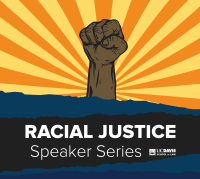
Created in response to the tragic killings by police of George Floyd, Breonna Taylor and others and the widespread protests that followed, UC Davis Law’s Racial Justice Speaker Series is now in its third year. Reaffirming the law school’s longtime commitment to racial justice, the series invites leading scholars from around the country to explore systemic racism as it pertains to all communities of color and areas of law. The goals are to inform, enlighten, and - most important - engage in meaningful conversation with our King Hall community and the larger public.
Wednesday, Sept. 28, 2022
12:15 - 1:15 p.m. Pacific
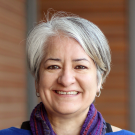
Leticia Saucedo
Martin Luther King Jr. Professor of Law
UC Davis School of Law
"Banking Access as a Civil Right"
Migrant integration requires full participation of immigrants at all levels, including access to financial services. The Mexican American Legal Defense and Educational Fund (MALDEF) has sued several financial institutions for their failure to provide access to credit and/or membership because of one’s alienage or immigration status. Leticia Saucedo, who is currently National Senior Counsel for MALDEF, will discuss the legal strategies and theories used in litigation against banks and credit unions that fail to provide full access to immigrants in California and beyond.
Wednesday, Oct. 5, 2022
12:10 - 1 p.m. Pacific
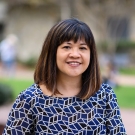
Rose Cuison-Villazor
Interim Dean, Professor of Law and Chancellor's Social Justice Scholar
Rutgers Law School
"Rewriting Downes v. Bidwell"
Downes v. Bidwell, 182 U.S. 244 (1901), is known as one of the most important of the Insular Cases. In Downes, the Supreme Court held that although Puerto Rico is an unincorporated territory that belongs to the United States, it is nevertheless not part of the “United States.” As such, not all parts of the Constitution apply to Puerto Rico.
Downes unabashedly relied on racist views to justify its holding. Specifically, the Supreme Court referred to the people of Puerto Rico as an “alien race[ ], differing from us in religion, customs, laws, methods of taxation, and modes of thought,” such that “the administration of government and justice, according to Anglo-Saxon principles, may for a time be impossible.”
Using the growing methodology of rewriting Supreme Court opinions to better understand the relationship between constitutional law jurisprudence and racial injustice, this Essay examines what a rewritten Downes v. Bidwell could look like. Part I discusses themes from the original opinion that facilitated racial injustice. Part II examines the contemporary implications of Downes and the Insular Cases. Part III highlights themes that a rewritten opinion may deploy. Finally, the Essay concludes with a rewritten Downes v. Bidwell.
Wednesday, Oct. 26, 2022
12:10 - 1 p.m. Pacific
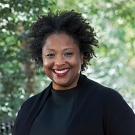
Deborah Archer
ACLU President and Professor of Clinical Law
NYU Law
"The Power and Persistence of Racism"
Deborah N. Archer is a Professor of Clinical Law and Co-Faculty Director of the Center on Race, Inequality, and the Law at NYU School of Law and ACLU President.
During this discussion Professor Archer will broadly address racial justice, touching on housing, voting rights, and criminal legal system reform. She is an award-winning teacher and legal scholar whose articles have appeared in leading law reviews. Deborah has also offered commentary for numerous media outlets, including MSNBC, National Public Radio, CBS, Monocle, The Atlantic, and The New York Times.
Deborah is a graduate of Yale Law School, where she was awarded the Charles G. Albom Prize, and Smith College. She previously worked as an attorney with the American Civil Liberties Union and the NAACP Legal Defense and Educational Fund, Inc., where she litigated in the areas of voting rights, employment discrimination, and school desegregation. Deborah is also a former chair of the American Association of Law School's Section on Civil Rights and the Section on Minority Groups. She previously served as Chair of the New York City Civilian Complaint Review Board, the nation’s oldest and largest police oversight agency.
This endowed lecture honors the life of Edward L. Barrett Jr., founding dean of UC Davis School of Law and renowned constitutional law scholar.
Wednesday, Nov. 30, 2022
12:10 - 1 p.m. Pacific
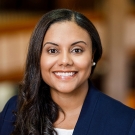
Veronica Martinez
Professor of Law
Duke Law
"Building a Culture of Ethical Inclusion"
Corporate firms have long expressed their support of the notion that their organizations should become more demographically diverse, while creating a culture that is inclusive of all members of the firm. These firms have traditionally, however, not been successful at improving demographic diversity and true inclusion within the upper echelons of their organizations. The reality that firms’ statements failed to live up to their realities, however, was upended after the #MeToo Movement of 2017 and 2018, which was followed by corporate support of the #BlackLivesMatter Movement in 2020. These two social movements, while distinct in many ways, forced firms to rethink how to approach the status of women and people of color within their organizations. It forced them to ask, yet again, but with renewed energy: “What is the best way to improve diversity and inclusion within firms?” I argue that in addition to pursuing the Business and Legal Cases for diversity when crafting diversity, equity, and inclusion (“DEI”) programs, firms should also employ the “Ethics Case,” which is necessary for creating a truly inclusive organizational culture.
Veronica Root Martinez joined the Duke Law faculty in 2022 from Notre Dame Law School, where she was a professor of law, the Robert & Marion Short Scholar, and director of the Program on Ethics, Compliance & Inclusion.
Martinez teaches Securities Litigation, Enforcement, & Compliance; Corporate Compliance & Ethics; Global Compliance Survey; Professional Responsibility; and Contracts. Her greatest professional joy is when her Contracts students begin to analyze cases like lawyers.
Wednesday, Feb. 1, 2023
12:10 - 1 p.m. Pacific
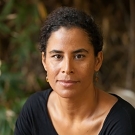
Kelly Lytle Hernández
Professor & Thomas E. Lifka Chair of History
UCLA
"Bad Mexicans: Race, Empire, and Revolution in the Borderlands"
Bad Mexicans tells the dramatic story of the magonistas, the migrant rebels who sparked the 1910 Mexican Revolution from the United States. Taking readers to the frontlines of the magonista uprising and the counterinsurgency campaign that failed to stop them, Kelly Lytle Hernández puts the magonista revolt at the heart of U.S. history.
Kelly Lytle Hernández is a professor of History, African American Studies, and Urban Planning at UCLA where she holds The Thomas E. Lifka Endowed Chair in History and directs the Ralph J. Bunche Center for African American Studies. One of the nation’s leading experts on race, immigration, and mass incarceration, she is the author of Migra! A History of the U.S. Border Patrol (University of California Press, 2010), City of Inmates: Conquest, Rebellion, and the Rise of Human Caging in Los Angeles (University of North Carolina Press, 2017), and Bad Mexicans: Race, Empire, and Revolution in the Borderlands (Norton, 2022). She also leads Million Dollar Hoods, a big data research initiative documenting the fiscal and human cost of mass incarceration in Los Angeles. For her historical and contemporary work, Professor Lytle Hernández was named a 2019 MacArthur “Genius” Fellow. She is also an elected member of the Society of American Historians, the American Academy of Arts and Sciences, and the Pulitzer Prize Board.
Wednesday, March 1, 2023
12:10 - 1 p.m. Pacific
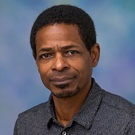
Bruce Haynes
Professor
UC Davis Department of Sociology
"Between Race and Religion: Reflections on Jews, Race, and Antisemitism"
In January 2002, Whoopi Goldberg drew widespread criticism after stating, on an episode of The View, that the Holocaust was "not about race, but about man's inhumanity" to man. Whoopi’s comments, while insensitive and ignorant, reflected common views about race and antisemitism that have become deeply entrenched in American society– that racism is synonymous with color, and that Jews don’t experience racial discrimination. Join sociologist Bruce Haynes for a lunchtime conversation about the shifting relationship between racism and antisemitism in American culture and why it matters.
Bruce D. Haynes is Professor of Sociology at the University of California, Davis where he holds affiliations in African American Studies, Geography, Community and Regional Development, Religious Studies, and Jewish Studies. His research interests include segregation, suburbanization, the black middle class, race and racialization, and ethnic/racial community organization. Dr. Haynes has written for ESPN, and most recently, The Forward. His most recent book, The Soul of Judaism: Jews of African Descent in America (New York University Press, 2018), won the 2019 Albert J. Raboteau Book Prize for Best Book in Africana Religions and was noted by the Jewish Book Council.
Wednesday, March 15, 2023
12:10 - 1 p.m. Pacific
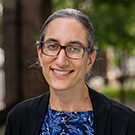
Serena Mayeri
Professor
University of Pennsylvania Carey Law School
"Marital Supremacy Reproductive (In)Justice"
Serena Mayeri is Professor of Law and History at the University of Pennsylvania Carey Law School, where she teaches and writes about legal history, equality, work, and the family. Her book, Reasoning from Race: Feminism, Law, and the Civil Rights Revolution (Harvard University Press), received the Littleton-Griswold Prize from the American Historical Association and the Darlene Clark Hine Award from the Organization of American Historians. She is currently at work on a book exploring challenges to the legal primacy of marriage in the United States since 1960, tentatively titled The Status of Marriage: Marital Supremacy Challenged and Remade. Her scholarship has appeared in edited volumes and in publications such as the Yale Law Journal, the California Law Review, and Constitutional Commentary. She has contributed to amicus briefs in cases involving abortion rights, marriage equality, marital status and citizenship, constitutional family rights and immigration, and the inclusion of sexual orientation and gender identity in sex discrimination prohibitions.
Mayeri holds a secondary appointment in the Department of History at Penn, where she is also a member of the Core Faculty and the Executive Board of the Program on Gender, Sexuality, and Women’s Studies, and serves on the Executive Committee of the Andrea Mitchell Center for the Study of Democracy. Mayeri was named a Distinguished Lecturer by the Organization of American Historians in 2016 and received the Robert A. Gorman Award for Excellence in Teaching in 2019. Before coming to Penn, she earned her J.D. and Ph.D. in History from Yale, clerked for the Honorable Guido Calabresi on the U.S. Court of Appeals for the Second Circuit, and served as a Samuel I. Golieb Fellow at the New York University School of Law.
Wednesday, March 22, 2023
12:10 - 1 p.m. Pacific
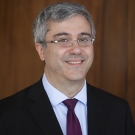
Thomas Saenz
President and General Counsel
MALDEF
"Status Report on Latino Civil Rights after 20 Years as Nation’s Largest Minority Group"
Twenty years ago, in January 2003, the Census Bureau announced that Latinos had surpassed Blacks to become the largest minority group in the United States. In the recent 2020 Census, results show that Latinos accounted for 51 percent of the nation’s total population growth over the preceding decade despite the largest estimated undercount of any racial/ethnic group nationwide. The leader of MALDEF for the last 13 and a half years will discuss how this new and expanding demographic growth and change present challenges to the nation and to the Latino community, as well as how Latino civil rights history informs these challenges.
Thomas Saenz is President and General Counsel of MALDEF; he leads the organization in pursuing litigation, policy advocacy, and community education to promote the civil rights of all Latinos living in the United States in the areas of education, employment, immigrants’ rights, and voting rights. Saenz rejoined MALDEF in August 2009, after four years on Los Angeles Mayor Antonio Villaraigosa's executive team. He previously spent 12 years at MALDEF practicing civil rights law, including four years as litigation director. He has served as lead counsel for MALDEF in numerous cases, including challenges to California Proposition 187, California Proposition 227, and California congressional redistricting. In 2016, Saenz argued before the U.S. Supreme Court in United States v. Texas, representing intervenors defending Obama Administration deferred action initiatives. Saenz graduated from Yale College and Yale Law School; he clerked for two federal judges before initially joining MALDEF in 1993.
Monday, April 17, 2023
12:10 - 1 p.m. Pacific
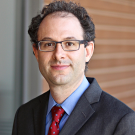
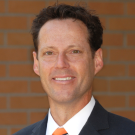
Darien Shanske & Dennis Ventry
Martin Luther King Jr. Professor of Law
UC Davis School of Law
"Tax and Racial Justice"
Professors Shanske and Ventry will provide context for thinking about the intersection between tax policy and racial justice.
Wednesday, April 19, 2023 (CANCELED)
12:10 - 1 p.m. Pacific
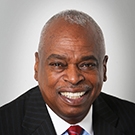
Wade Henderson
Interim President and CEO
The Leadership Conference on Civil and Human Rights
